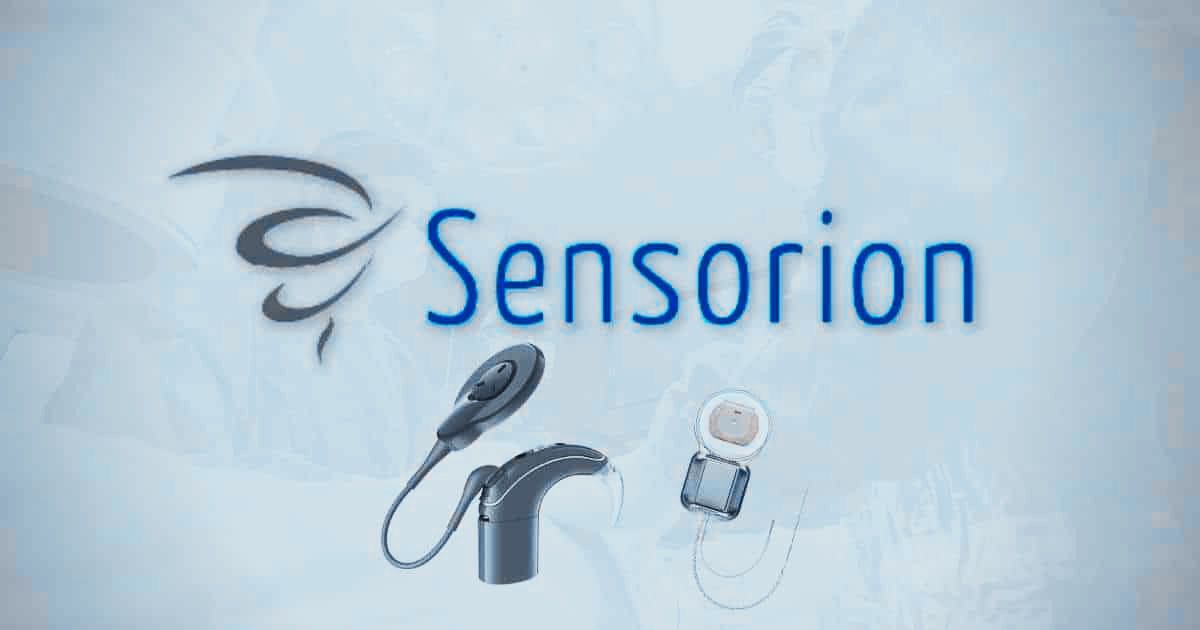MONTPELLIER, FRANCE — Biotechnology company Sensorion has announced that it has met the primary endpoint for its Phase 2a clinical trial of SENS-401, a drug candidate aimed at preserving residual hearing after cochlear implantation.
The Phase 2a trial was a multicenter, randomized, controlled, open-label study designed to evaluate the presence of SENS-401 in the inner ear fluid (perilymph) at potentially therapeutic levels after seven days of twice-daily oral administration prior to cochlear implantation in patients with moderately severe to profound hearing impairment.
Sensorion reported that the presence of SENS-401 in the perilymph at levels compatible with potential therapeutic efficacy was confirmed in 100% of the patients sampled, meeting the trial’s primary endpoint.
This result indicates that orally administered SENS-401 can cross the blood-labyrinth barrier and reach the inner ear.
Preserving Residual Hearing After Implantation
A total of 28 patients were randomized in the trial, with 25 patients receiving cochlear implants – 16 in the SENS-401 treatment arm and 9 in the control non-treated arm. The study also assessed secondary endpoints, including changes in hearing thresholds from baseline to the end of the study in the implanted ear at various frequencies.
While patient follow-up is ongoing, Sensorion plans to publish the complete study results, including the secondary endpoints related to residual hearing preservation, in the third quarter of 2024.
“We are delighted to announce we met the primary endpoint for the Phase 2a clinical trial of SENS-401 for residual hearing preservation. We are looking forward to the publication of the full dataset of this study later this year.”
–Nawal Ouzren, Chief Executive Officer of Sensorion
The Phase 2a trial was developed in collaboration with Cochlear Limited, a global leader in implantable hearing devices. Under a 2017 agreement, Cochlear has an option to negotiate with Sensorion for global licensing rights to distribute SENS-401 for use with certain implantable devices once the complete study data is available.
About SENS-401
SENS-401 (Arazasetron) is Sensorion’s lead drug candidate, designed to protect and preserve inner ear tissue from damage leading to progressive or sequelae hearing impairment. The Phase 2a trial evaluates SENS-401’s potential to prevent residual hearing loss in patients undergoing cochlear implantation, while another Phase 2 trial assesses its efficacy in preventing Cisplatin Induced Ototoxicity. SENS-401 has received Orphan Drug Designation from the EMA in Europe for treating sudden sensorineural hearing loss and from the FDA in the U.S. for preventing platinum-induced ototoxicity in pediatric populations.
About Sensorion
Sensorion is a pioneering clinical-stage biotech company, which specializes in the development of novel therapies to restore, treat and prevent hearing loss disorders, a significant global unmet medical need. Sensorion has built a unique R&D technology platform to expand its understanding of the pathophysiology and etiology of inner ear related diseases, enabling it to select the best targets and mechanisms of action for drug candidates.
It has two gene therapy programs aimed at correcting hereditary monogenic forms of deafness, developed in the framework of its broad strategic collaboration focused on the genetics of hearing with the Institut Pasteur. OTOF-GT targets deafness caused by mutations of the gene encoding for otoferlin and GJB2-GT targets hearing loss related to mutations in GJB2 gene to potentially address important hearing loss segments in adults and children. The Company is also working on the identification of biomarkers to improve diagnosis of these underserved illnesses.
Sensorion’s portfolio also comprises clinical-stage small molecule programs for the treatment and prevention of hearing loss disorders.
Sensorion’s clinical-stage portfolio includes one Phase 2 product: SENS-401 (Arazasetron) progressing in a planned Phase 2 proof of concept clinical study of SENS-401 in Cisplatin-Induced Ototoxicity (CIO) and, with partner Cochlear Limited, in a study of SENS-401 in patients scheduled for cochlear implantation. A Phase 2 study of SENS-401 was also completed in Sudden Sensorineural Hearing Loss (SSNHL) in January 2022.
Source: Sensorion






